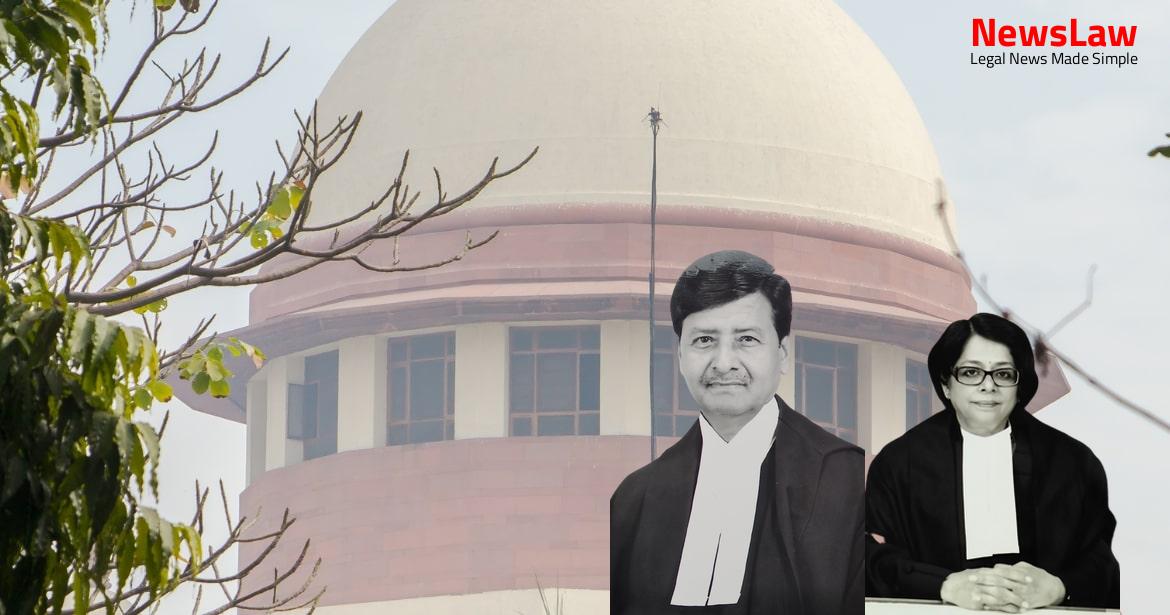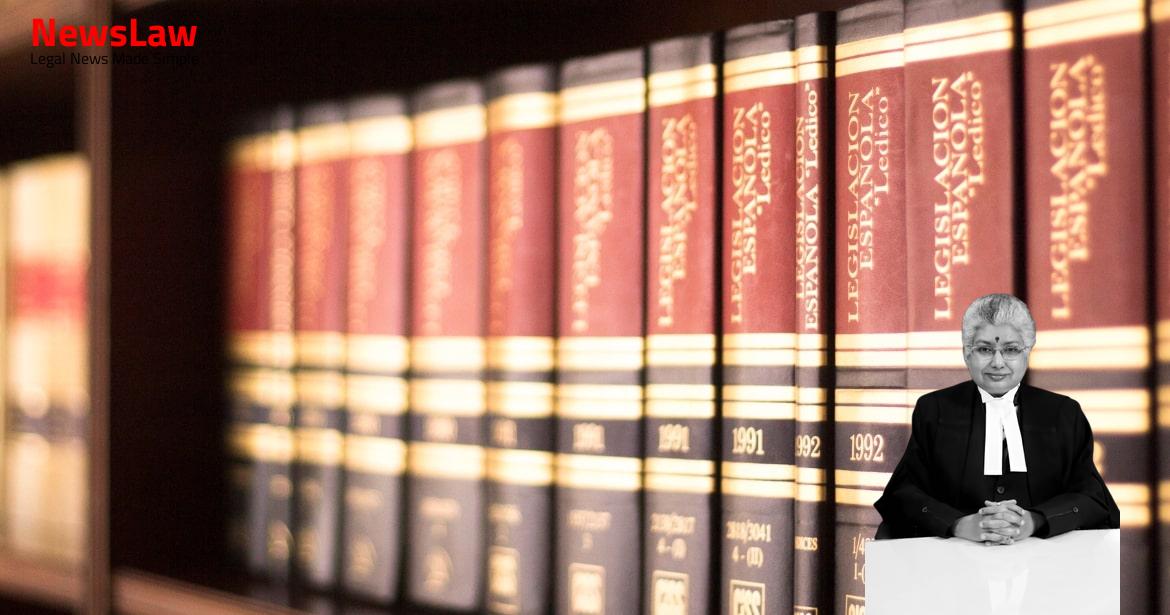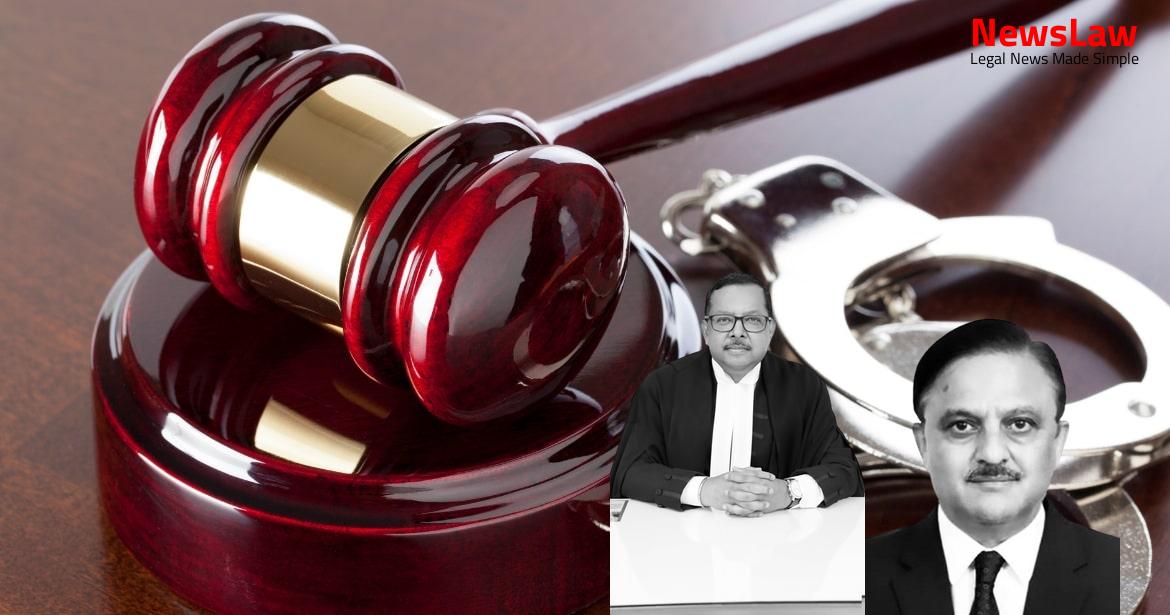In a significant legal development, the Supreme Court has issued a judgment concerning investigation standards in Special Case No 37/11. The case revolves around the discharge of the respondents following an investigation conducted by an officer below the rank of Deputy Superintendent of Police. The Court’s ruling addresses the legality of such investigations and their compliance with the relevant laws, providing clarity on the required standards in such cases.
Facts
- Grievance raised by respondents regarding faulty investigation as per Section 3(2)(v) of the Act, 1989.
- Claim that investigation conducted by Officer below rank of Deputy Superintendent of Police is illegal as per Section 9 of the Act, 1989 read with Rule 7 of Scheduled Castes and Scheduled Tribes(Prevention of Atrocities) Rules, 1995.
- Demand for quashing the investigation and subsequent discharge of the respondents.
- Cognizance of the matter taken by the trial court, registering Special Case No 37/11.
- Statements recorded from key witnesses including Narsu, Kamla Prajapati, and Uparia Bai.
- Confirmation that the deceased was last seen with the present respondents.
- Appeal filed against the High Court’s judgment confirming the discharge of respondents from the offences under Sections 302/34, 404/34 of the IPC and Section 3(2)(v) of the Act, 1989.
- Background details of deceased Baisakhu meeting Kamla Prajapati in a drunken state, leading to the suspicious circumstances surrounding his death.
- Investigation conducted by Sub-Inspector resulting in filing of charge-sheet against the present respondents for various offences.
- Trial court held that investigation conducted by an officer below the rank of Deputy Superintendent of Police was without authority and illegal.
- Respondents were discharged not only from charges under the Act, 1989 but also from IPC charges.
- High Court upheld the trial court’s decision to discharge the respondents based on the investigation conducted by a lower-ranking officer.
- Appellant argues that High Court erred in quashing the proceedings on a hyper-technical ground and that the discharge is not sustainable in law, especially at an advanced stage of the trial.
- Appellant contends that interference by the Supreme Court is necessary.
Also Read: Legal Analysis in Custody Battle Resolution
Arguments
- Appellant’s counsel argued that the investigation was found to be faulty and not in compliance with the mandate of the relevant laws.
- The structure built by the appellant could not sustain on the weak foundation created by the faulty investigation.
- It was pointed out that the investigation was conducted by an Officer below the rank of Deputy Superintendent of Police, which is against the mandatory requirement under Rule 7 of the Rules, 1995.
- No dispute was raised by the appellant regarding the fact that the investigation did not meet the required standards.
- The Special Judge’s decision to discharge the respondents was deemed appropriate in the given circumstances and was upheld by the High Court.
Also Read: Legal Analysis on Challenging Compromise Decree
Analysis
- An officer below the rank of Deputy Superintendent of Police cannot act as the investigating officer in cases related to offences under the Act, 1989.
- Investigations conducted by a competent police officer in accordance with the provisions of the Code cannot be quashed for not investigating offences under Section 3 of the Act, 1989.
- It is the duty of the State Government to issue notifications conferring the power of investigation to officers not below the rank of Deputy Superintendent of Police in cases involving offences under the Act, 1989.
- Rule 7 of the Rules, 1995 mandates that the rank of the investigating officer should not be below the rank of Deputy Superintendent of Police.
- The combined reading of Section 9 of the Act, Rule 7 of the Rules, and Section 4 of the Code establishes that an investigation by an officer not appointed in accordance with Rule 7 is illegal and invalid.
- The State Government has the power to confer powers on any officer for the prevention and handling of offenses under the Act.
- Officers of police and other government officers must assist the officer conferred with powers by the State Government.
- Investigation of offenses under the Act must be conducted by a police officer of at least the rank of a Deputy Superintendent of Police.
- The investigating officer must complete the investigation within thirty days and submit the report to the Superintendent of Police, who will then forward it to the Director General of Police.
- The Respondent, Chunnilal @ Chunni Singh was charged under Section 376 of the Indian Penal Code for committing rape on a minor girl.
- The trial court convicted the Respondent and sentenced him to undergo rigorous imprisonment for seven years.
- The High Court, however, set aside the conviction on the ground that the prosecutrix had stated that she had given her consent for sexual intercourse with the Respondent.
- The High Court also noted that there was no evidence to show that the prosecutrix was below the age of 16 years on the date of the incident.
- The prosecution failed to prove beyond reasonable doubt that the prosecutrix was a minor and that the sexual intercourse was without her consent.
- Thus, the High Court acquitted the Respondent.
- The State of M.P. appealed against the acquittal before the Supreme Court.
Also Read: State vs. Shajimon & Ors.: Bail Decision Under NDPS Act
Decision
- The High Court made an error in quashing the proceedings and discharging the accused from offences under IPC.
- Accused were charged under Sections 302/34, 404/34 IPC apart from Section 3(2)(v) of the Act, 1989.
- Charges under IPC were framed after investigation by a competent police officer under the Code.
- The charge-sheet should proceed in the appropriate competent Court for IPC offences.
- The order only applies to the offence under Section 3 of the Act, 1989 and not IPC offences.
- Special Case No. 37/11 is restored to the Special Court for further proceedings on IPC offences.
- Trial Court is directed to conclude the trial expeditiously for IPC offences.
- Pending applications are disposed of.
- The appeal is partly allowed according to the indicated terms.
Case Title: THE STATE OF MADHYA PRADESH Vs. BABBU RATHORE (2020 INSC 53)
Case Number: Crl.A. No.-000123-000123 / 2020



